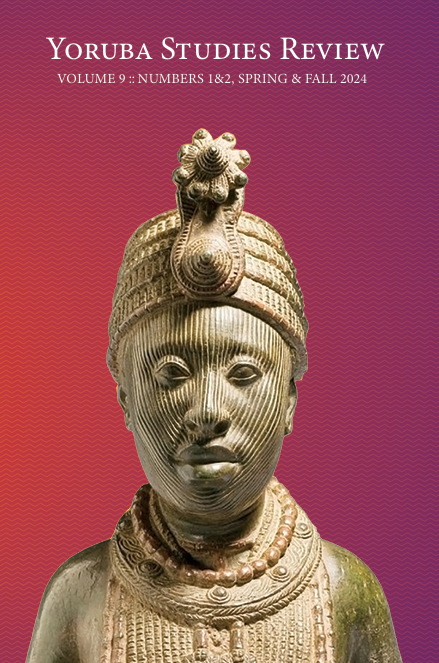Abstract
Tọ́pẹ́ Àlàbí is a renowned Yorùbá artiste, whose gospel music is widely recognized within and outside of Nigeria. In one of her titles, Lọ́gán tí Ó Dé, she makes it explicit that barrenness goes beyond biological classification. In Àlàbí’s opinion, any void in human’s life means barrenness. The lyrics reveal that the significance of barrenness is associated, not only with childlessness, but also with individuals who are unable to keep pace with their equals in the world of achievement. By using Schleiermacher’s hermeneutics, this essay explored how Tọ́pẹ́ Àlàbí’s Lọ́gán tí Ó Dé deconstructs the import of barrenness, reveals people’s attitude towards the barren and indicates the effects of people's view of the barren. In addition to listening to, and transcribing Tọ́pẹ́ Àlàbí’s Lọ́gán tí Ó Dé, oral interviews were conducted with twelve selected individuals. The study concludes that metaphoric expressions in music could help project a people’s understanding of their socio-cultural environment.

This work is licensed under a Creative Commons Attribution-NonCommercial 4.0 International License.
Copyright (c) 2024 Taiwo Ọpẹyẹmi Akinduti, Anu Oluwakemi Wale-Olaitan
